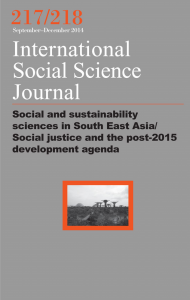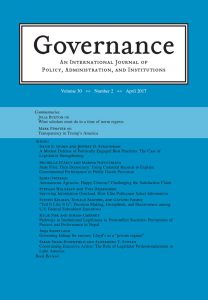Category: Race & Ethnicity Studies
On May 10th, the Department of Justice (DOJ) filed a lawsuit against Sheriff Joe Arpaio of Arizona’s Maricopa County. The suit alleges that the man who claims to be “America’s toughest sheriff” has propagated a culture of discrimination against Hispanics and Latinos during his time in office. More specifically, it is argued in the lawsuit that Arpaio’s office has consistently permitted the violation of the civil rights of Hispanics and Latinos in its quest to crackdown on illegal immigration. It...
In my last post, I mentioned the larger discussion about blame for racism that cases like Trayvon Martin produce. One consistent meme that arises every time black people protest the killing of a black person by a white person is: Why don’t black people protest when blacks kill other blacks? After all, statistically black homicide victims are more likely to be killed by blacks than any other race. Black on black homicide certainly happens at a far greater rate than...
The Trayvon Martin case has become a national media event complete with competing individual evaluations, competing definitions of racism and competing blame narratives. In these “racial events,” Americans propensity for individualistic analysis coalesces with America’s racialized culture in order to produce a mix of individual evaluations and sweeping claims about racial groups and the institutional privileges and disadvantages of different racial groups. In my experience, this process reinforces many of the flawed ideas about race that sociologists regularly debunk...
Editor’s note: This post has been printed with permission of the author. By Dr. Jamie Longazel Last fall, the Rust Belt city of Dayton, Ohio approved the “Welcome Dayton Plan” — an attempt to foster the inclusion of immigrants and refugees in a city devastated by years of economic decline. Dayton’s plan comes at a time when two separate but not unrelated fires are blazing across the country: economic crisis and anti-immigrant sentiment. We should certainly applaud Dayton’s willingness to...
Lately there has been a lot of talk about class, and not just the vague election year pandering to the vague demographic of the “middle class.” Instead, the very concept of class has become a subject of debate. Last time, I focused on Mitt Romney’s comment’s about “people who have fallen out of the middle class.” This time I focus on fellow candidate Rick Santorum’s criticism of Romney for using the word class. Here’s what Santorum said: “There are no...
A recent article published in the Kansas City Star stimulated my interest for a discourse. I found the article especially relevant, as presently, a wide segment of the United States population vehemently opposes undocumented aliens in the country. The article’s author reported that an immigration bill proposal sponsored by State Senator Will Kraus, a Lee’s Summit Republican, would require public schools in Missouri to verify the immigration status of students. A provision of the proposed bill stipulates that all public...
“I don’t know if I should be saying this right now,” sophomore Allie stated, her eyes making a cautionary sweep of the room, even though except for us it was empty, and the door had long been shut. White and well-off, she held a prestigious academic scholarship and took many of her courses through a selective honors program. But not this course: “[The professor] was a nice lady, but she felt like she had to tie every single thing she...
Sociology Compass © Blackwell Publishing Ltd Volume 5, Issue 8 Pages 666 – 762, August 2011 The latest issue of Sociology Compass is available on Wiley Online Library Communication & Media Cultural Imperialism Versus Globalization of Culture: Riding the Structure-Agency Dialectic in Global Communication and Media Studies (pages 666–678) Christof Demont-Heinrich Article first published online: 1 AUG 2011 | DOI: 10.1111/j.1751-9020.2011.00401.x Culture The Cultural Construction of Heterosexual Identities (pages 679–687) James Joseph Dean Article first published...
AJ shrugged when I asked him why he didn’t even mention the panel. He had been working on it since last semester. Yet during the class period when the very theme of his panel was central to the topic at hand in his upper-level Gender and Families seminar, AJ said nothing of his own work. He spoke, of course. And as usual, his teacher and his classmates seemed engaged in what he said. They nodded; they looked at him when...
If you asked Americans to pick which political party they considered pro-immigration and which one they considered anti-immigration most would agree that the Republican Party is anti-immigration and the Democratic Party is pro-immigration. Like abortion politics, this does not mean that every Democrat is pro-immigration and every Republican anti-immigration. Still, the divide between the parties appears to be growing starker as voters either sort themselves into parties due to their stance on immigration or solidify their stances on immigration as...
In his newest book, Elijah Anderson turns his micro-sociological attention to those places in the modern US city that foster racial understanding and harmony. In The Cosmopolitan Canopy Anderson claims that a pluralistic embrace of social difference is supported most readily by the titular “canopies” that he explores in contemporary Philadelphia. Over the span of an astounding thirty years of observation, Anderson attempts to convey an image of how people “live race” (xvi) in ways that challenge old forms of...
Sociology Compass © Blackwell Publishing Ltd Volume 5, Issue 5 Page 311 – 398 The latest issue of Sociology Compass is available on Wiley Online Library Gender Rethinking Gender and Violence: Agency, Heterogeneity, and Intersectionality (pages 311–322) S.J. Creek and Jennifer L. Dunn Article first published online: 2 MAY 2011 | DOI: 10.1111/j.1751-9020.2011.00360.x Race & Ethnicity Navigating a Hostile Terrain: Refugees and Human Rights in Southeast Asia (pages 323–335) Pei Palmgren Article first published online: 2...
Candidate Barack Obama promised to enact immigration reform in his first term. That promise is almost certain to go unfulfilled. The result of years of heated debate has been deadlock between two seemingly irreconcilable positions. On one hand, many in congress support a “path to citizenship” for undocumented workers and increased legal immigration. On the other, a substantial number argue for greater border enforcement, mass deportation, and decreased immigration. While the status quo has virtually no vocal support, systems create...
David Orr half-smiled at me from the pages of the New York Times Book Review this morning. In his dark blue button down shirt, head cocked sympathetically to the side, wire-rimmed glasses gracefully seated at the bottom of a long forehead, this man has clearly selected an author photo of himself that represents his belief in the power of ideas. His own, surely, and those of others so long as they are expressed in poetry. But Orr’s new book Beautiful...
Institutional racism is one of the key concepts sociology professors try to impart to students. Institutional racism refers to systemic processes which perpetuate racial inequality even in the absence of racial prejudice and intentional individual-level discrimination. The concept helps students understand how decisions made in the past affects present-day inequality and furthermore that present-day decisions do not take place in a race-neutral realm. Examining how institutions function discourages the use of anecdotal evidence and encourages students to employ a social-level...
“Many US Blacks Moving to South, Reversing Trend” reads a recent headline from the New York Times. This article evokes more than a reversal of geographic mobility as it cites a “New South.” This article follows, an article from a few days earlier entitled, “Black and White and Married in the Deep South: A Shifting Image.” Based on 2010 Census data, these articles suggest an America where the reversal of racial migration flows and long-standing taboos may signal an end...





